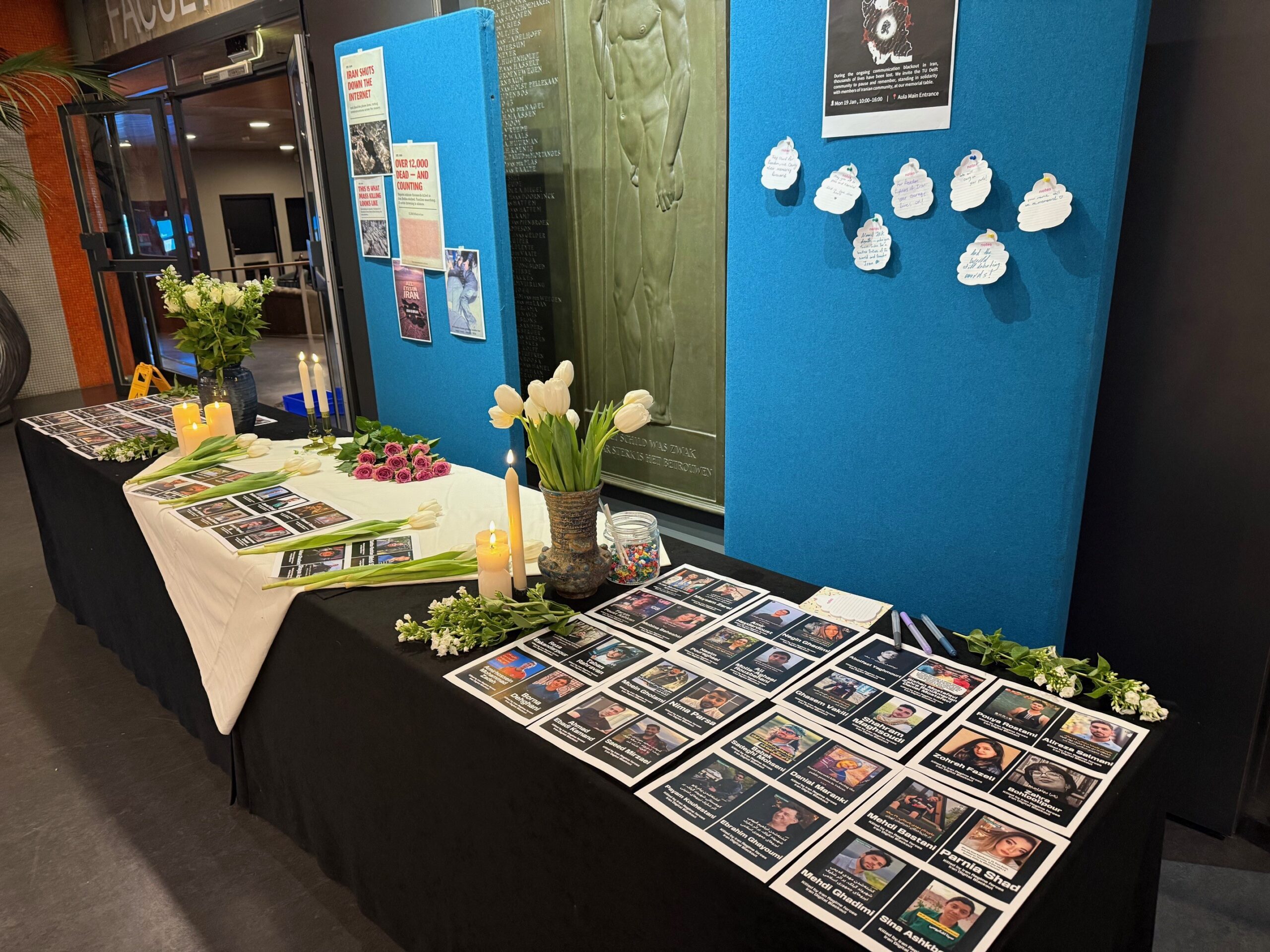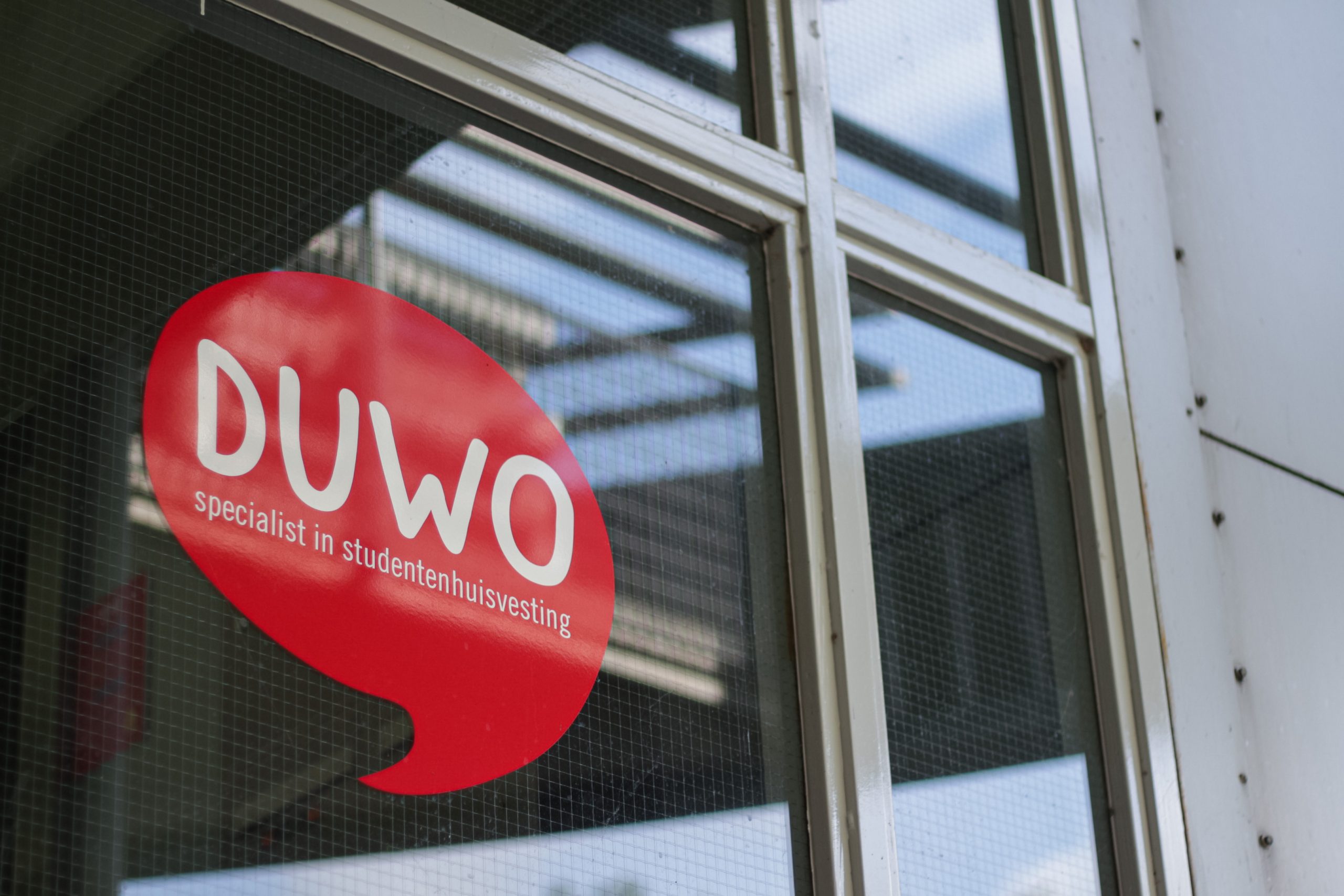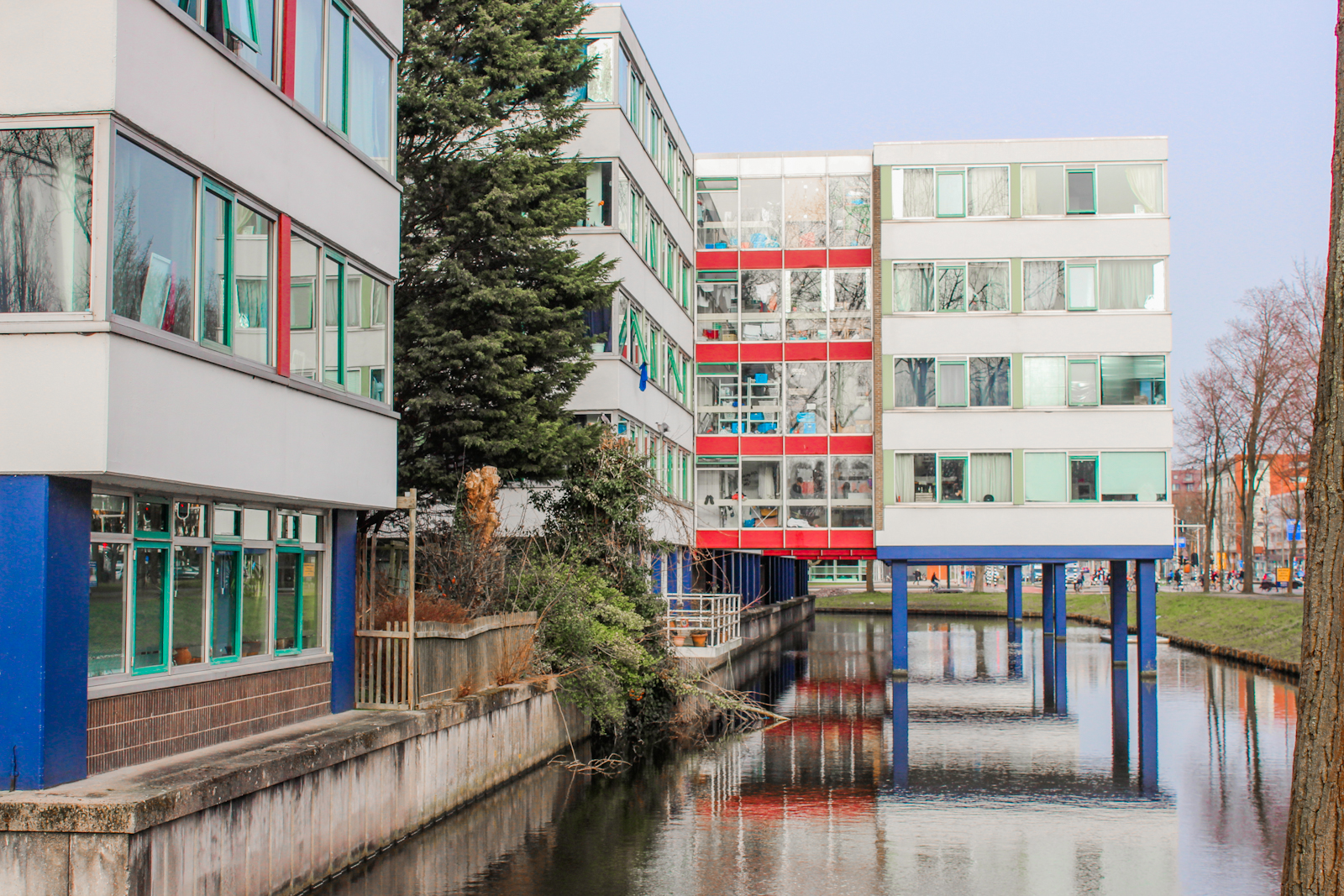Short news
The new coalition has divided up the ministerial posts. As expected, the Ministry of Education, Culture, and Science will go to D66. The Undersecretary will remain a member of the VVD.
D66 leader Rob Jetten will become Prime Minister and VVD member Eelco Heinen is the intended Minister of Finance. State Secretary Sandra Palmen (formerly NSC, now independent) will remain responsible for handling the social benefits scandal.
Other candidates for the new cabinet are not yet known, but informateur Rianne Letschert could well make the move to The Hague, perhaps as D66 Minister of Education. The Maastricht University administrator is appreciated by Jetten and apparently also gets on well with the party leaders of CDA and VVD.
It seems unlikely that former minister Robbert Dijkgraaf will make a comeback for D66. His policy was torpedoed by the Schoof cabinet, and the new coalition also seems to be taking a slightly different direction than he advocated. The current VVD State Secretary for Education is Koen Becking. It is not yet clear whether he will remain in office.
Defense minister from VVD
The ministers of Defense are also important for universities and colleges, as a significant portion of the increased defense budget will be spent on knowledge and innovation. The minister comes from the VVD, while the CDA provides the state secretary.
CDA leader Henri Bontenbal will remain in the House of Representatives. It remains to be seen what VVD leader Dilan Yesilgöz will do. In the past, she was State Secretary for Economic Affairs (2021-2022) and Minister of Justice and Security (2022-2024).
HOP, Bas Belleman
Study programmes are disappearing, lecturers are being laid off and small study groups are turning into massive lectures. This is due to cuts in education funding, says the Dutch National Union of Students (LSVb) in a ‘black book’ presented to the Dutch Parliament on Tuesday.
The new minority coalition of D66, CDA, and VVD has promised to reverse the cuts to education, but the LSV) remains deeply concerned: the damage cannot be undone overnight.
“There is hardly any room to study on campus, courses are disappearing, and education is deteriorating,” says LSVb chair Maaike Krom. The union has collected examples in a ‘black book’. With personal stories from students and teachers, the LSVb hopes to “make the consequences tangible for politicians.”

When teachers leave, they are not replaced. Small study groups become large lectures. Honors programs disappear or are scaled back. Administrative staff are laid off. Workloads are increasing everywhere. Some buildings are forced to close their doors. The introduction week is shortened.
These are just a few of the many consequences of the cutbacks, says Krom. “It’s shocking how quickly the quality of education has deteriorated.” She hopes that the black book will give the Dutch House of Representatives “a push in the right direction.”
And what about the new coalition’s promise to reverse the cuts? “At the moment, it means nothing,” says Krom. “A majority in parliament still has to be achieved.”
HOP, Naomi Bergshoeff
Read more about the cuts to higher education and TU Delft in our dossier.
To celebrate mathematics, the Faculty of Electrical Engineering, Mathematics, and Computer Science (EEMCS) is organising a world record attempt on March 3 to form the world’s largest human π symbol.
The record attempt will not take place on Pi Day, which is on March 14 (3-14), but it will be at exactly 3:14 p.m. The current record stands at 2,036 people. That may seem like a lot, but with 26,000 students and more than 7,500 TU Delft employees, it could theoretically be possible.
Following the record attempt, mathematician Hanne Kekkonen (statistics group, EEMCS) will give a Pi lecture.
- Date: Tuesday, March 3, 2026, doors open at 2:45 p.m., official time of record attempt (sharp) 3:14 p.m.
- Location: TU Delft location X, Building 37, Mekelweg 8, 2628 CD Delft, Soccer field 1 (follow the Pi Day signs in the building to get to the soccer field)
- Participants: Anyone who would like to be part of a world record attempt
- Goal: World record for Largest human pi symbol
- Dress code: TU Delft blue (for cohesion in the pi record photos).
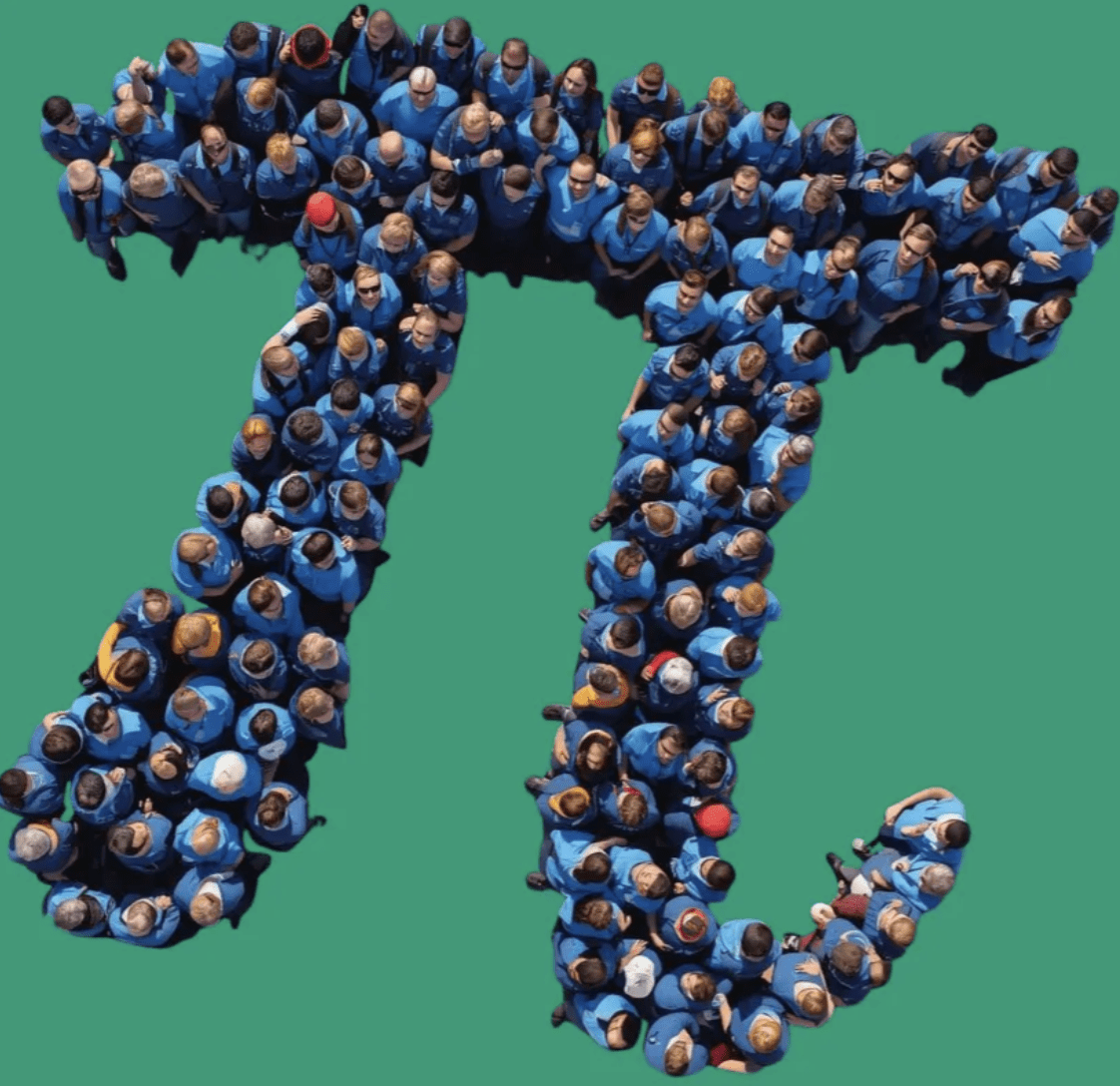
“We urge you to respond to this situation with the necessary decisiveness and urgency.” This is what (former) Iranian TU employees and alumni wrote this week to Rianne Letschert, the informateur who led the coalition talks, and the three party leaders who were at the table. The open letter was supported by more than three hundred citizens and was drafted in consultation with Comité Iran Vrij, writes co-initiator Nima Hakim on LinkedIn.
The initiators, including three TU employees, wanted the situation in Iran to be explicitly discussed during the coalition talks. They have not heard anything back, says co-initiator and former TU employee Sara Amiri. On Thursday, it was announced that the initiators’ first concrete demand had been granted: the EU decided to place the Islamic Revolutionary Guard Corps on its list of terrorist organisations. That news is very welcome, says Amiri.
The initiators also want the Dutch ambassador to Iran to be recalled, the government to publicly declare that the Iranian regime will be held accountable for its actions, and the crown prince to be recognised.
Long-term approach
In the coalition agreement presented on Friday afternoon, the parties forming the coalition state that Iran’s undermining influence must be countered with maximum sanctions. A positive and necessary step, says Amiri, but not enough. “There is no long-term approach, maximising support for the Iranian people. At the moment, the focus is on sanctions and security, and too little on human rights and democracy.”
For weeks, Iran has been the scene of large-scale uprisings against the regime, fuelled by economic discontent. The demonstrators are demanding an end to the regime of the Islamic Republic. The Islamic Revolutionary Guard Corps is cracking down hard on the protests; estimates of the death toll range from 5,000 to more than 30,000. The situation continues to deteriorate, according to Amiri. “The official number of deaths and detainees continues to rise.”
Thirteen researchers from Dutch knowledge institutions have secured a Proof of Concept grant, the European Research Council (ERC) announced this week during a second award round. Researchers at TU Delft did not receive any grants in this round, but they did manage to obtain three during the first phase.
In total, the ERC has awarded 136 Proof of Concept grants to researchers in 23 countries. The laureates had previously received an ERC research grant and may now use this funding to explore the commercial or societal potential of their research.
Sustainable paracetamol
During the first award phase, announced in July 2025, researchers from the faculties of Applied Sciences (AS), Mechanical Engineering (ME), and Civil Engineering and Geosciences (CEG) were awarded grants.
Professor of Biotechnology Frank Hollmann (AS) received €150,000 for the BioParacetamol project, through which he is working on the sustainable production of paracetamol. Associate Professor Farbod Alijani (Mechanical Engineering) may use the grant to take the first steps towards the commercialisation of innovative accelerometers for autonomous vehicles. Associate Professor Branko Šavija (CEG) will continue work on the Defcrete project, which focuses on formable concrete composites for sustainable infrastructure.
(HOP, NB / Delta, AdB)
Are you a student at TU Delft and do you have an opinion on current topics about student life, studying, the ins and outs of TU Delft in general or your faculty in particular?
Can you argue your opinion well and are you able to do so once every month in no more than 500 words each time? Then you might be our new student columnist!
Want to read some columns? Check out our opinion page.
- You will have a monthly deadline. We will pay you a word rate per published word in the original language of the column.
- Are you interested? Send us a sample column of no more than 500 words in Dutch or English (in Word) before 23 February 2026. In it, answer the questions why you should become our new student columnist, what you would write about and why. We will judge your submission on originality, sharpness and writing style.
- Do you have any questions? Ask Saskia Bonger, editor-in-chief: mailto:s.m.bonger@tudelft.nl.
Free coffee with the new Rector: some 100 TU Delft staff members were up for that last Thursday morning. Hester Bijl had a coffee cart brought to the Aula for the occasion, something she had already announced when she was inaugurated at the Dies Natalis a week earlier.

On LinkedIn, she writes that while drinking coffee, she was asked many questions about her first days as Rector and heard stories ‘about everyone’s work, motivations and passions. About what is going well, and also where people see room for improvement or where they see challenges’. Bijl writes that she mainly tried to listen, because she prefers to get to know TU Delft ‘through the people who shape it every day’.

Not done getting acquainted yet
Bijl is no stranger to TU Delft, however. Before serving as a an Executive Board member at Leiden University for nine years, she was a researcher and Dean of the Faculty of Aerospace Engineering. During the Dies, however, she said she did not want to fall into the trap of thinking she already knows everything.
On LinkedIn, she writes that the coffee moment is worth repeating. “After these first encounters, I am really looking forward to getting to know and talk to more and more people. That won’t be possible all at once, but I am committed to doing so.”

Last week, student council party ORAS and tenants’ organisation WijWonen handed over 127 letters to student housing provider DUWO. In the letters, tenants share their experiences with house hunting, housemates and living together.
In June, DUWO announced its intention to amend its current tenant selection policy. Existing tenants would no longer be allowed to choose their new housemates entirely on their own. DUWO’s aim in doing so is to increase equal opportunities for house hunters.
‘More than just a selection tool’
The announcement caused unrest in several student cities. Eighteen Delft student associations sent an open letter to DUWO director Anneleen Lagae to express their concerns.
In the new letter campaign, both Dutch and international students share their experiences with hospiteren, housemates and living together. Both positive and negative. The letter writers live in different types of houses, including association houses, mixed houses and two-person houses.
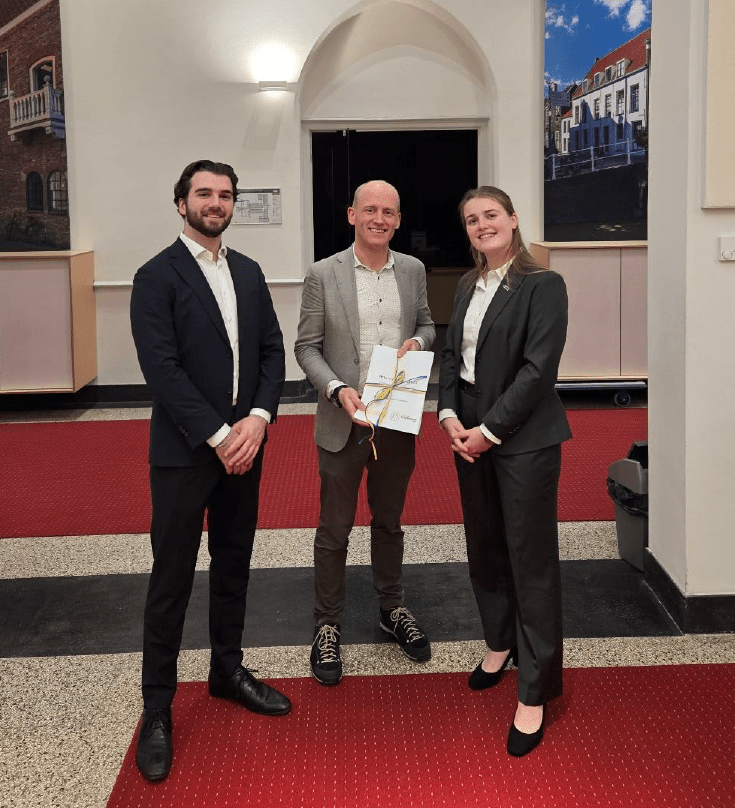
According to ORAS and WijWonen, the letters reveal ‘a clear desire for free roommate selection without pre-selection’, they write in a joint press release. They believe that the current admission policy is more than just a selection tool.
Local politics
The issue is also being discussed in local politics. Municipal council party STIP previously submitted written questions to the executive board of the municipality (the mayor and aldermen) about the proposed policy change. The questions and answers can be found on the Municipality of Delft’s website (in Dutch).
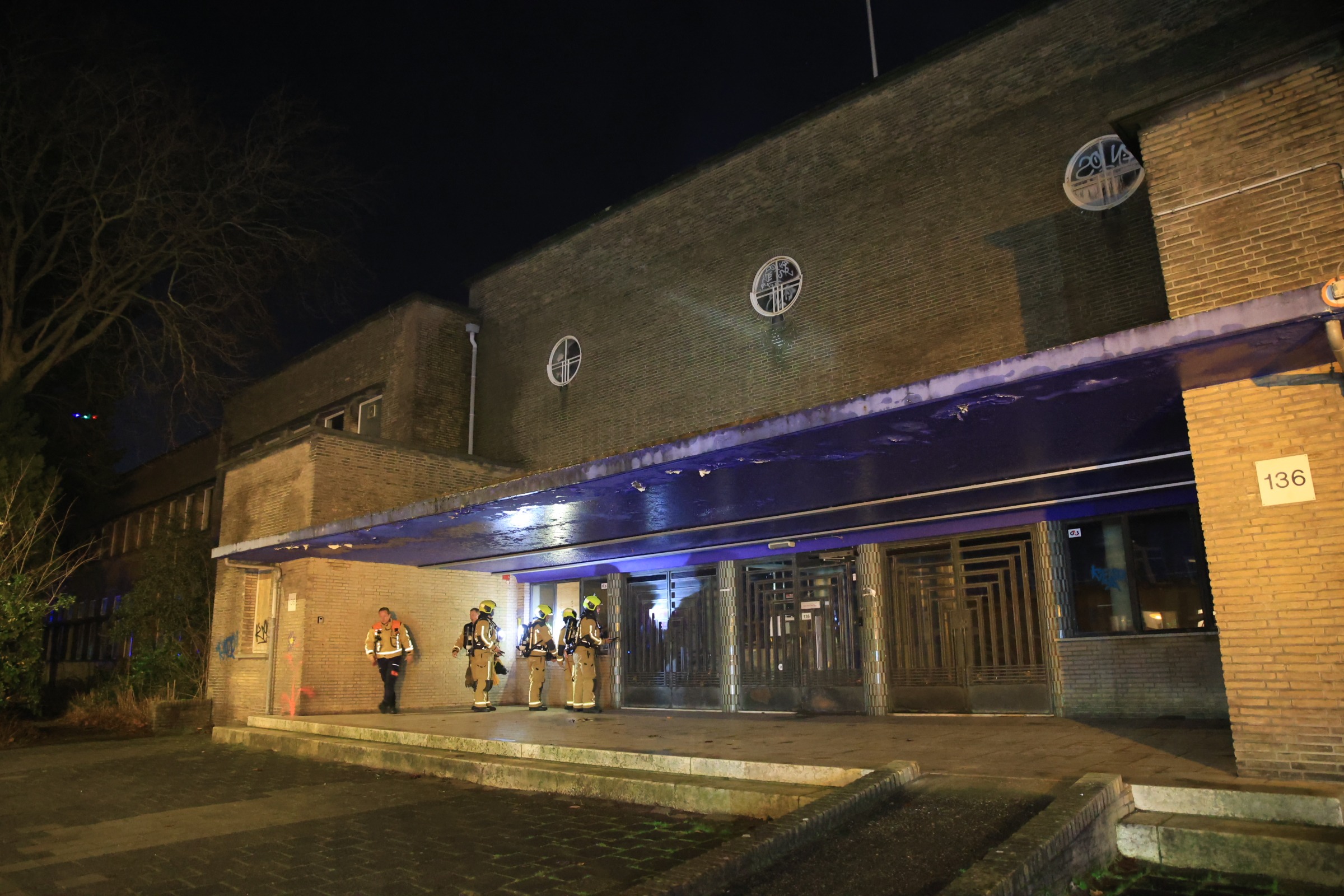
There was a lot of smoke on Julianalaan on Sunday evening due to a fire in the historic TU building Gele Scheikunde (Yellow Chemistry). The fire started in a small pile of rubbish. The fire brigade arrived at the scene at around 6.35 P.M. and was able to extinguish it quickly. The fire was under control by around 7 P.M., according to the fire brigade. There were no casualties.
The former TU building opposite the Faculty of Architecture and the Built Environment has been vacant for a long time. There have been frequent break-ins, according to District 8 (in Dutch) which also reports that the police are investigating arson.
For many years, Gele Scheikunde was home to the department of Chemical Engineering. TU Delft sold the three-hectare site to project developers six years ago. Shortly before that, the municipality of Delft had already acquired ownership of the Kramers Laboratory, part of Gele Scheikunde, for the symbolic amount of 1 euro.
Although it is currently vacant, the municipality and the project developers have big plans (in Dutch) for the space. Part of the historic building will remain standing and be given a new function. In addition, around 300 owner-occupied and rental homes will be built, supplemented by space for businesses, shops, restaurants and an underground parking lot.
In medium-sized cities there is sometimes insufficient knowledge and experience when it comes to student housing. The government needs to do something about that, according to a motion submitted by the Dutch Parliament on Thursday. The signatories are the future governing parties D66, CDA and VVD, along with GroenLinks-PvdA and ChristenUnie. They are already guaranteed a majority in the new Cabinet.
In medium-sized cities there are usually no specialised student housing providers, these parliamentary groups say. Housing associations in these towns therefore do not always have enough knowledge and experience. The same goes for the local officials who have to apply the strict rules on houses in multiple occupation and the subdivision of dwellings.
The government should set up a support programme for student housing in which housing associations and officials in large university cities share knowledge and experience. The aim is to speed up the construction of non-self-contained student accommodation.
Splitting and sharing
Housing minister Mona Keijzer (BBB) said she could not pledge extra funding for this. She does, however, also believe that there is room for improvement in the splitting and sharing of homes. In the municipality of Utrecht, you no longer have to apply for a licence if you share a house with up to three people, she told the House of Representatives.
She outlined the dilemma faced by policymakers: municipalities are responsible for local housing policy, such as the subdivision of homes, because that is the level at which such decisions can best be made. “At the same time, you can see in practice that local authorities simply do not have enough administrative capacity,” Keijzer believes.
You could then create national policy, Keijzer explained, but that is less tailored to local circumstances. She is leaving those choices to the next government.
HOP, Bas Belleman



